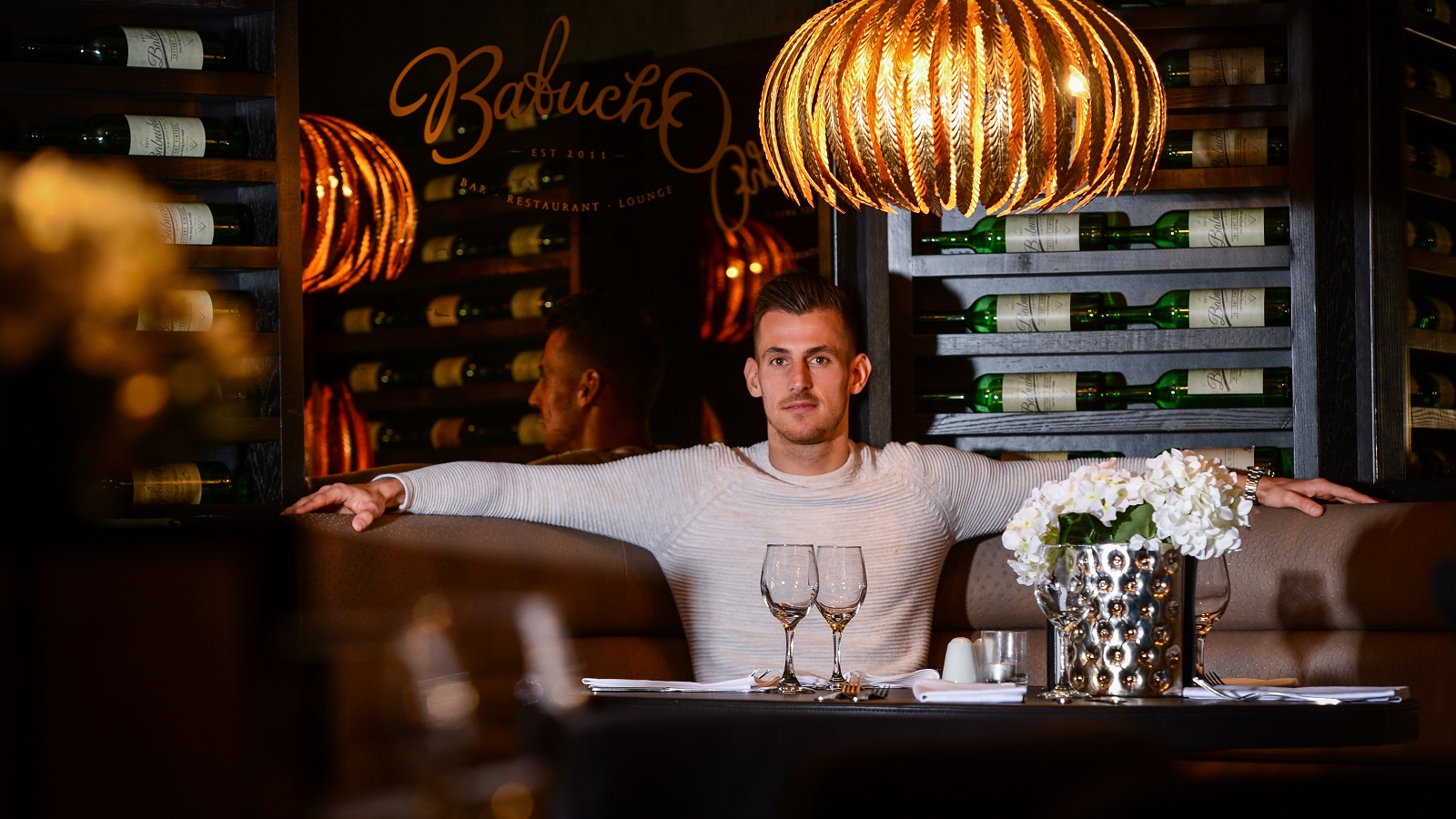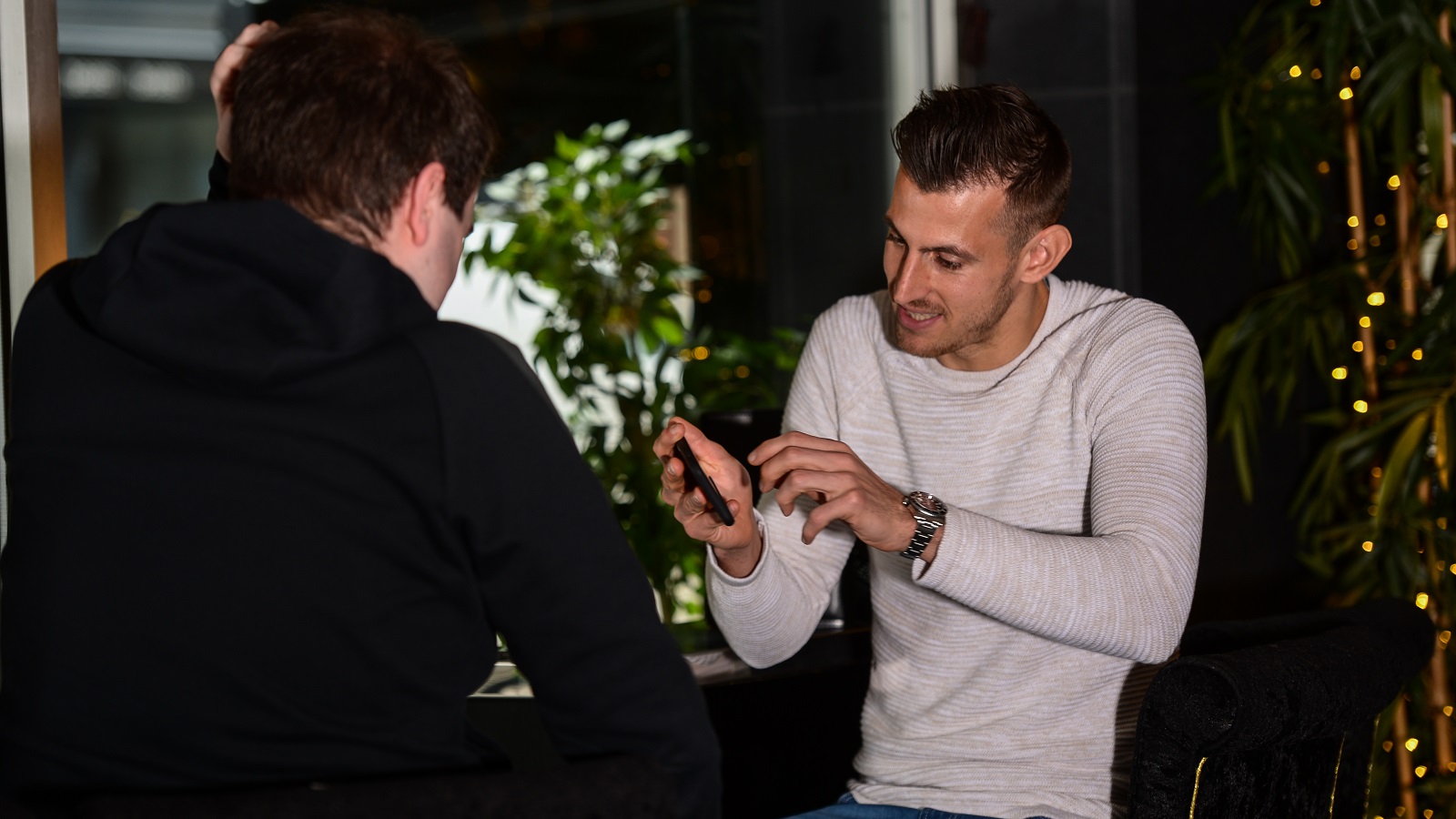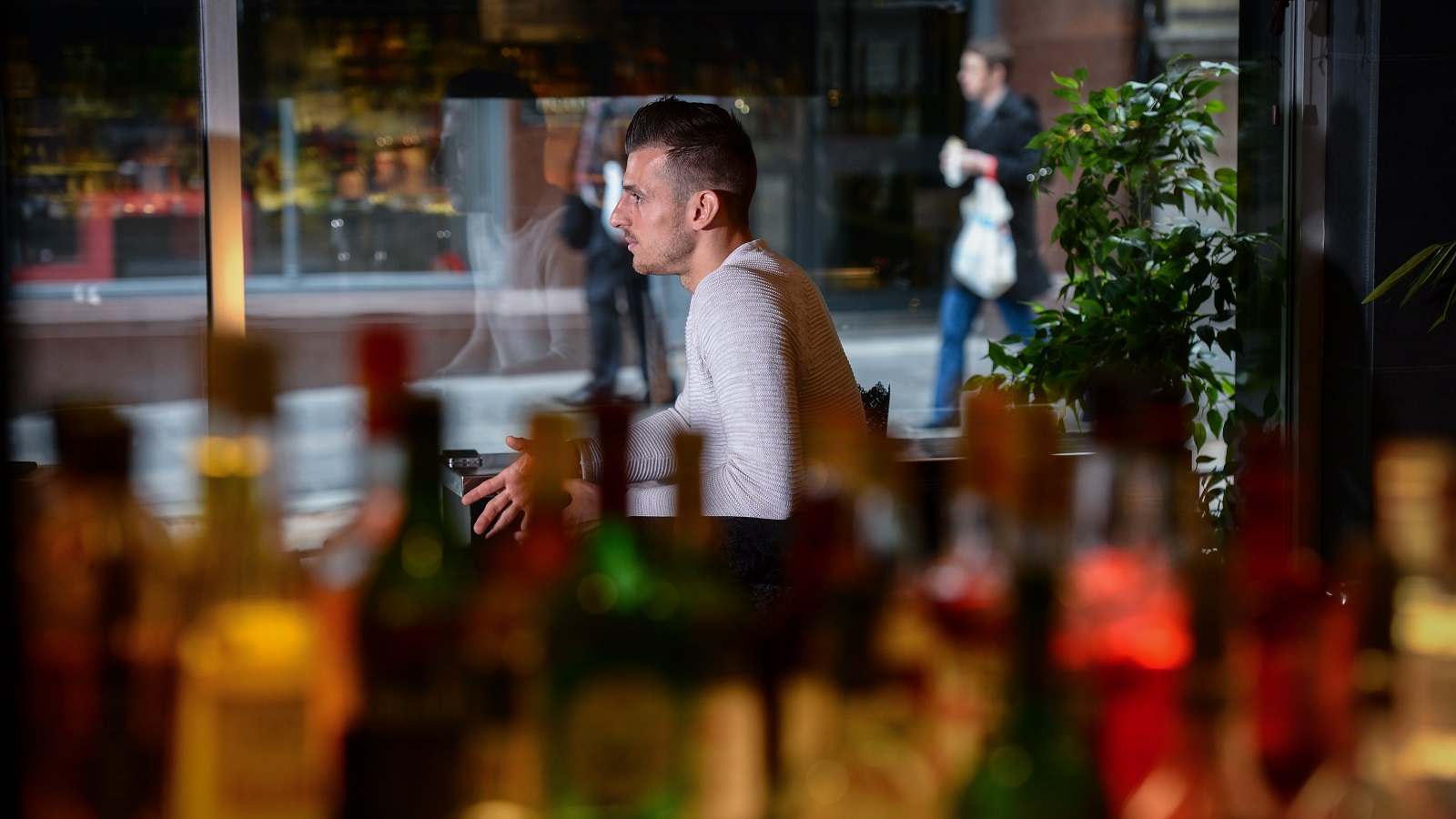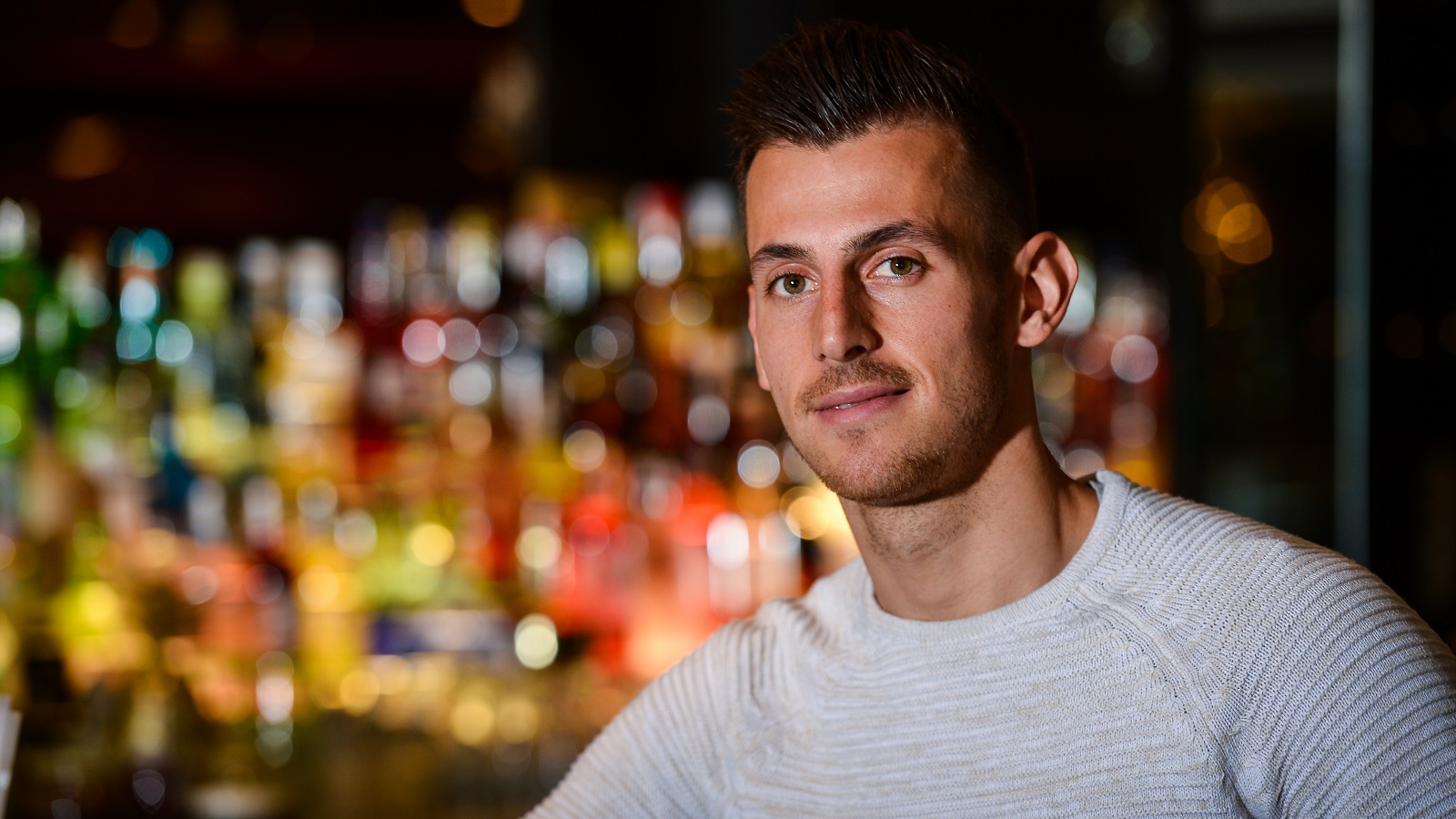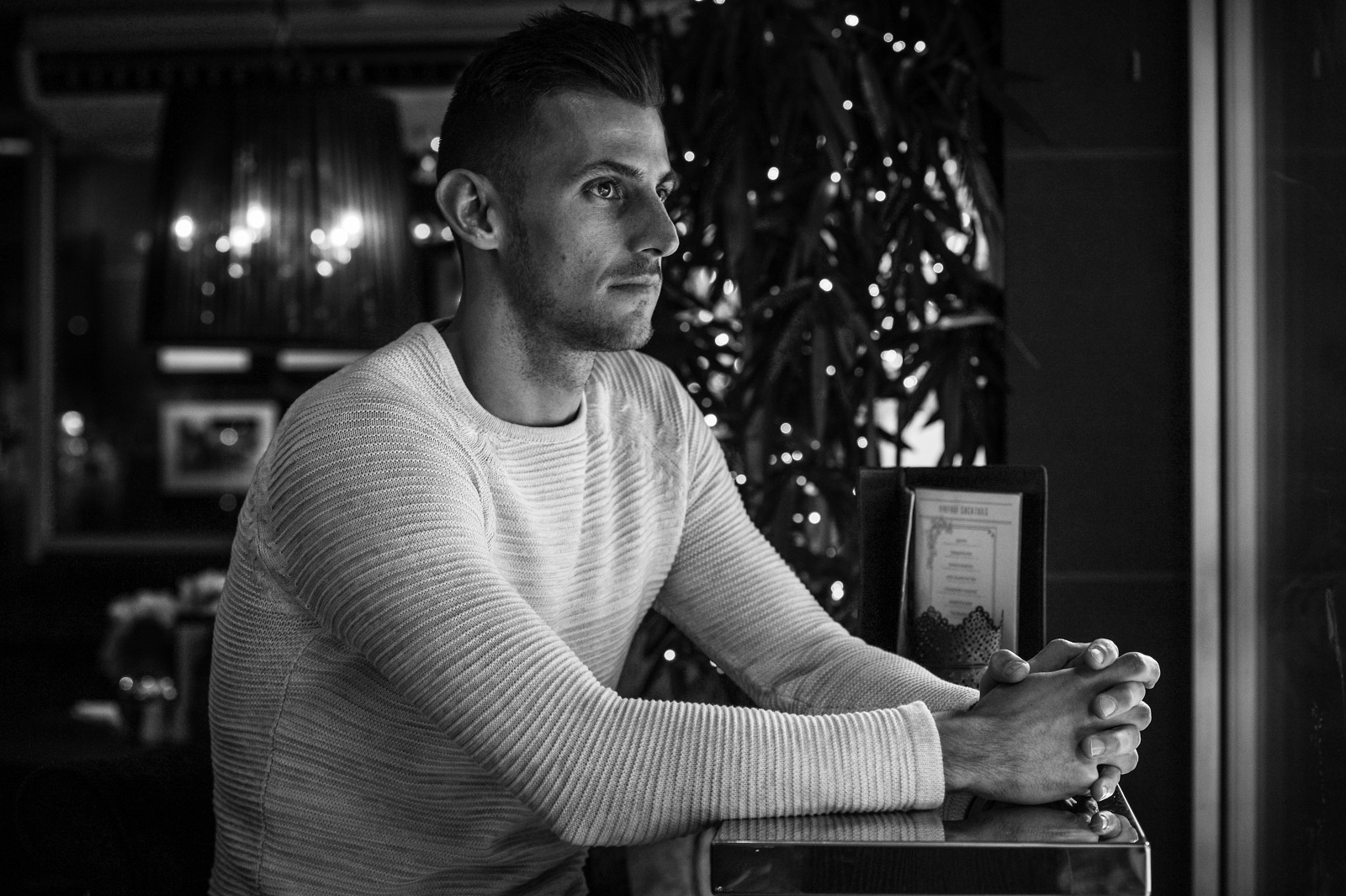Features
Martin Dúbravka programme interview - in full
Written by Tom Easterby
Martin Dúbravka’s was a relative unknown on these shores prior to his January deadline day move to Newcastle United, but he’s wasted little time in making himself the Magpies’ first choice goalkeeper. The 29-year-old – who is still yet to concede a goal at St. James’ Park – met UNITED in town before recording another clean sheet in Saturday’s victory over Huddersfield Town, charting his journey so far in an exclusive, in-depth interview. You can now the feature in its entirety here…
The phone rang and an unfamiliar number flashed up on the screen. After a moment’s hesitation, Martin Dúbravka picked it up and took the call. “When he said his name, I was a little bit quiet, a little bit shocked also,” he recalls. “‘It is Pavel Srnícek. What do you think about playing for Sparta Prague?’”
Dúbravka, then in his early 20s, was the first choice goalkeeper at MSK Zilina, one of the leading clubs in his homeland. Since his debut in 2009, he had won the Slovak Super Liga twice and collected a pair of domestic cups along the way. He began to think it was time for a change, for a new challenge, in order to improve himself.
It was at that point Srnícek, the goalkeeping coach at Sparta, called. He met the young Dúbravka many years previously, presenting him with awards at youth tournaments and offering kind words. “He told me to keep up this hard work, and you will play in the best leagues. I was shocked – ‘this big person is talking with you honestly like this’. It gave me confidence, of course.”
Later, their paths crossed again when Zilina met the Czech side in a two-legged Champions League play-off in August 2010. Dúbravka’s team prevailed, winning 3-0 on aggregate. It was the first time the young stopper had played in front of a crowd of 20,000, so when he took that call from Srnícek a few years later, the memory was still relatively fresh. He wanted to go.
“They had a great history, big names. Then suddenly, the goalkeeper coach of Sparta Prague is calling you. I thought it could be great,” he remembers. “But he said, ‘you have to prove yourself’. I was a little bit surprised. We’d played against them – they could have seen me on the pitch. I was not that happy that I have to go there, that I should go there. I said, ‘OK, if I go there and we don’t find a deal it will look like I did not show myself in a good way’. He said, ‘just think about it’.
“I said, ‘but what position? You have a number one, you have a number two’. He said, ‘we will send you for a loan, then we will see after half a year’. I said, ‘I don’t want to go for a loan – I play for the best team in Slovakia, I’ve won the title, I don’t want to be in the second division or something like that’. So that’s why I didn’t sign a contract with Sparta. Then I went to Denmark.”
Dúbravka joined Esbjerg, where he earned his first full international cap for Slovakia. He hoped Srnícek understood his decision. “I apologised to him. I appreciated his offer, but I can’t sign a contract if I will not be in the team. I really hope he was not disappointed, but I had to look at myself in that moment.”
-
Martin Dúbravka rolls his eyes and laughs as he is handed a mobile phone. It isn’t ringing this time, but it does show some footage, perhaps a little embarrassing, of the Newcastle United goalkeeper in his younger days. He watches the video of his Zilina team recreating Psy’s 2012 hit Gangnam Style. “This is my sister,” he says, pointing to one of the women brandishing pom-poms to the left of her fresh-faced brother. “It was the idea of our sports director and my sister, because they know each other. They thought it would be a great idea to do it. This song was in all the countries around the world, so they said it could be fun. But only for the young players – the older players, they don’t want to do that! They want to look more serious.”
Not too long after his arrival on Tyneside, Dúbravka’s new teammates uncovered the footage. “Some of the players were joking with me in the dressing room, but in a good way,” he smiles. “They were laughing, I was laughing. I’ve got good memories from this video, how we recorded it, and also the after-party was very nice.”
Dúbravka is now 29, an established international and, as of January, a Premier League goalkeeper. His powerful, imposing six-foot three-inch frame belies a warmth of character that has helped him both settle quickly in a new league and command respect from those around him. Sitting at the window of Babucho restaurant, he looks out across Dean Street as he begins to explain how he made his presence felt so soon.
“If I don’t have something to say, I’m quiet. If I have something to say, I say it,” he shrugs. “I don’t know if I’m quiet, but I try to speak with people, to find a way. You are coming in as a new player in a new team, and you need to find a way.
“I try to speak with them and help them, because it’s very important to let them know if someone is behind them or they should go for the ball. That’s why the keeper is there – to help the players if they need me. Everybody can make mistakes – football is about mistakes sometimes – but I’m just trying to do my job, enjoy the game and help them.
“Of course, you don’t know what to expect of your players if you are coming to a new team on 31st January and then you have to play after a few days. You don’t know each other that much, but that’s football. You need to figure it out.”
He did, and quickly. Less than a fortnight after checking in on transfer deadline day, the loanee was handed his debut against Manchester United at St. James’ Park. He was told he would be starting two hours before kick-off. “I like to know I will play one day before the game, of course, because then you can prepare yourself,” admits Dúbravka. “But maybe it was a good idea and a good choice to do it like this. Then after that, I tried to just be ready and enjoy the game.”
Did the short notice affect his routine? “Not too much. I don’t like routines because if you don’t have enough time to do them, then you’re a little bit like ‘I didn’t do this, I didn’t do that’. I made a few stretches, there were some positive words from my family in my mind and some advice from coaches, to stay focussed. I just wanted to be focussed on the moment.”
When he walked out of the tunnel for the warm-up and saw how many people were already in their seats, he was taken aback. As a child, Dúbravka would raise his voice so he could be heard by all the players on the pitch; this time, he knew it was vital that at least the four defenders in front of him could hear him over the roar of 52,000 fans. “They shout at me sometimes as well – that’s important, we need to do that,” he points out. “Sometimes you have to show them, so if they turn they can see you and they realise, and it helps.
“You need to find a way to show yourself, to the fans, the club. But I didn’t think of it in this way, you know. I thought, ‘just go on the pitch and play football’, what I love. I’m happy that the debut against Manchester United was probably one of the best games I’ve played in. It will stay in my mind forever.”
There was no way past him that day. Matt Ritchie’s solitary strike won it, but Dúbravka’s excellence preserved those precious points. “I didn’t want to go off the pitch. You could see we were very happy. You can hear the crowd. I didn’t want to go to the dressing room, but I wanted to celebrate with my teammates. I wanted to stay a little bit longer and enjoy these feelings. That’s why you play football. It’s about the passion.”
Though he was born into a family with a history of goalkeeping, Dúbravka played many sports growing up. After sustaining an injury playing hockey, his grandmother brought him to football training. It became serious in his mid-teens, though he combined it with his studies. “Actually, I studied because there was a point where my parents told me, ‘if you want to play football you need to study. If you will not finish high school you won’t be a professional footballer – we will not let you play football’,” he explains. “So I finished high school and went to college, but then I had to choose.”
His chance at hometown club Zilina came shortly after and now, almost a decade on, he is playing in one of Europe’s top leagues for the first time. He has played in Denmark with Esbjerg and in the Czech Republic with Slovan Liberec and, eventually, Sparta Prague. “In two and a half years I changed three clubs,” he reflects. “But only in a good way – that’s important to say also. Many times it happens, when you don’t play and you need to find a club where you will play. I would like to be more stable, I would like to stay a bit longer in a club, because it’s very hard for me, my family and girlfriend, to still, you know, settle in.”
Dúbravka has moved to Newcastle with his girlfriend Lucia, and together they have begun to immerse themselves in the city. “At the beginning, in the first two days, she goes ‘I love this city’,” he smiles. “She loves the historical things. For her, I think it’s a very good choice to come here. Especially in the last month, we’ve travelled a lot, and we like to know the culture a little bit more. That’s important. We don’t like to only be in an apartment and be very comfortable. We are active, and many people can see us in the city centre, walking around and seeing how life is here.
“I can’t stay at home. Or I can stay home for maybe one day. But then we like to discover things, to have a nice life. If you are just thinking ‘OK, I’ll go to work and then back home’, no – I’m not like this. We don’t have children now, but until the children come, we would like to see things. That’s important for us.”
In his first interview as a Newcastle player, Dúbravka used the word ‘curious’ four times. By the time he faced the cameras on the 31st January, midnight was approaching and he was weary from 24 hours of travel and talks, but his words suggest he is not a passive spectator in life. “You are curious about everything,” he says. “You’re coming into a new team, with a big, big name in Europe. In my country, it’s really a huge step, you know. So I was curious how it works in a football way, and in personal life here. You are coming into a new world for you, so you’re curious about everything. And my girlfriend, she’s the same as me.”
A week after announcing his arrival with that display against Manchester United, Dúbravka sang an initiation song – such is tradition – in his native tongue at the team hotel the night before they faced Bournemouth. “Come on – it was beautiful, no?” he laughs. The next day, the travelling supporters sang his name. “I was very proud. When I noticed they were doing that I was so happy. That feeling in your mind…”
A thoughtful man who does not speak for the sake of it, he seems unburdened by expectation or pressure, outwardly at least. There is an unflustered yet authoritative aura about the Slovakian; that combination of traits has brought him a long way. “I try to do my job. But first of all I try to enjoy every game,” says Dúbravka as we head out onto Dean Street for the final few photographs. “Suddenly you’re here, and you need to fight for your position, of course, as in any team. But I’m on loan – so I need to fight more.”
–
It wasn’t easy for Dúbravka to turn Sparta and Srnícek down, but he knew he had to play. At Esbjerg, as at each of the stops along the road of his career, he learned and developed, absorbed in his surroundings. “It was probably a good step to go to Denmark – it was my first place outside of my country, and I had to manage myself in every way,” he says. “I didn’t speak English well, I had to study. I was there two-and-half-years. I found friends there.”
When he eventually did join Sparta in 2017, he began to learn more about the man who called him that day. His name was brought up once more when he signed for Newcastle, the club with which Srnícek is most closely associated and where his legend endures. Dúbravka thought of him again, on what would have been his 50th birthday, as he prepared to face Southampton earlier this month. “When I went for the warm up with Simon (Smith, goalkeeping coach), I told him today would have been the day Pavel would have had a birthday. I said it could be really nice if we win today and we will give him three points – a victory.”
Dúbravka chose to go his own way after that phone call, but he took a path which has led him to a place Srnícek would have approved of. With the 3-0 win secured, he dedicated it to the Czech’s memory. “It was very nice that we won, with a clean sheet,” says Dúbravka. “I really hope he could see that.”
"I didn’t want to go off the pitch. You could see we were very happy. You can hear the crowd. I didn’t want to go to the dressing room, but I wanted to celebrate with my teammates. I wanted to stay a little bit longer and enjoy these feelings. That’s why you play football. It’s about the passion."
